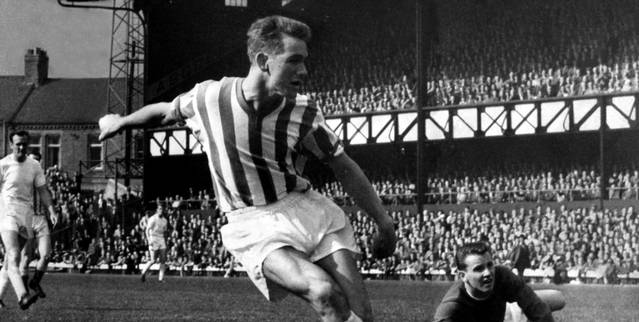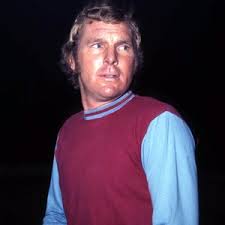Search My Football Facts & Stats
Web site designed & hosted by Paul Yarden © 2013 at Homestead™
Legendary Football Players: Brian Clough
099. Brian Clough
One of English football's most famous and widely respected characters, Brian Clough was one of his country's finest strikers in the late 1950s and early 1960s before injury brought his career to an early end. He went on to enjoy a fantastic career in management where he brought previously unknown levels of success to unfashionable clubs.
Born in Middlesbrough, Clough began his playing career with his hometown club and in six years in the first team scored 197 goals in just 213 league games. He was largely overlooked at international level, winning just two caps in the autumn of 1959, but in 1961 left Middlesbrough to join local rivals Sunderland. Again scoring goals at a rate of nearly one per game, he stayed for four years before being forced into retirement before his 30th birthday.
Clough's managerial career began with Hartlepools United in 1965, where he stayed for two years, before joining Derby County. He took Derby into the top division in 1969 and three years later led the club to the first league title in their long history. Having taken them to the semi-finals of the European Cup in 1973, Clough left Derby to join Brighton and Hove Albion before spending just 44 days in charge of Leeds United in 1974.
After his very short stay with Leeds, Clough returned to management with Derby's local rivals Nottingham Forest in 1975, and again took the club into the top division within two years. Against all expectations, Clough's team won the league title in the first season after their promotion, the first title and still today the only title in their history. They also won the English League Cup, and the following season not only retained that trophy but won the European Cup as well.
Amazingly, Forest retained the European Cup in 1980, putting them in the unique position of having more European titles than domestic titles. Although he would never win the F.A. Cup, Clough won two more League Cups in 1989 and 1990, and through the 1980s Forest were consistently among the top clubs in England. In his final season before retirement, the 1992-93 season, Forest slumped and sadly Clough's career ended with relegation from the newly formed Premier League. He suffered from health problems throughout his retirement, and died of cancer in 2004 aged 69.

